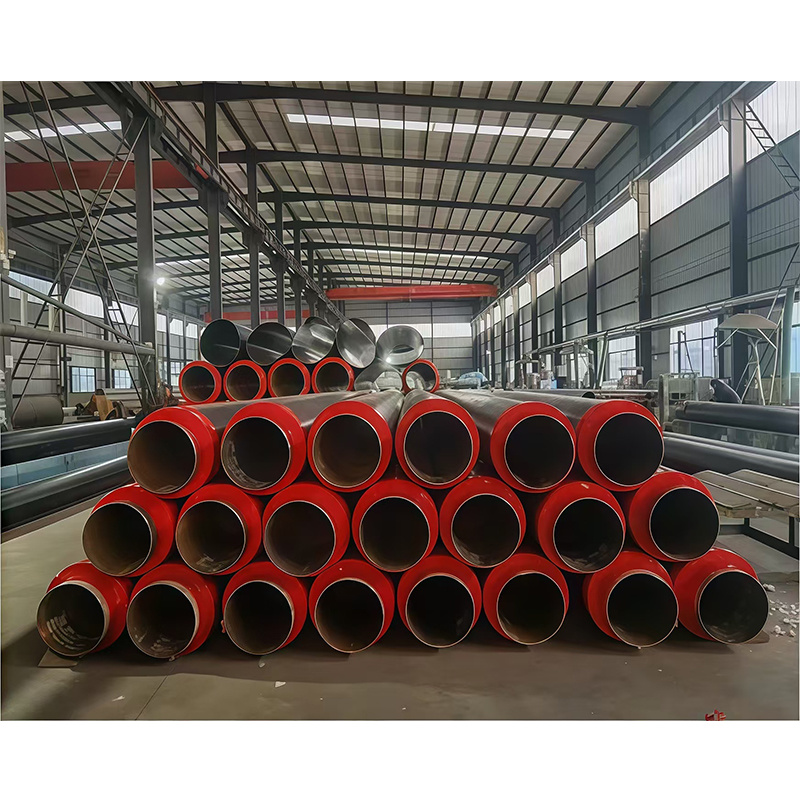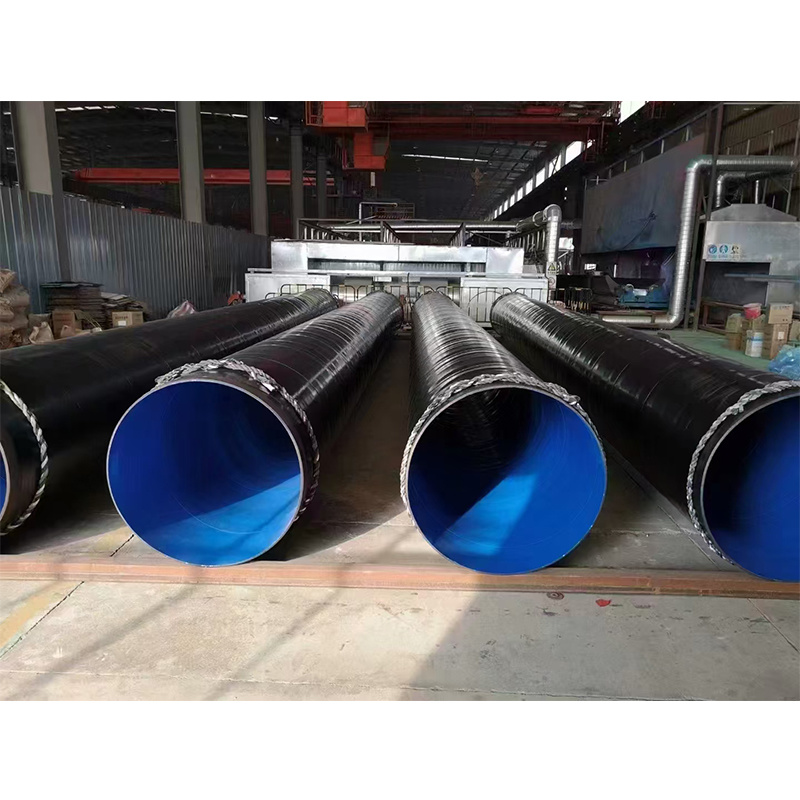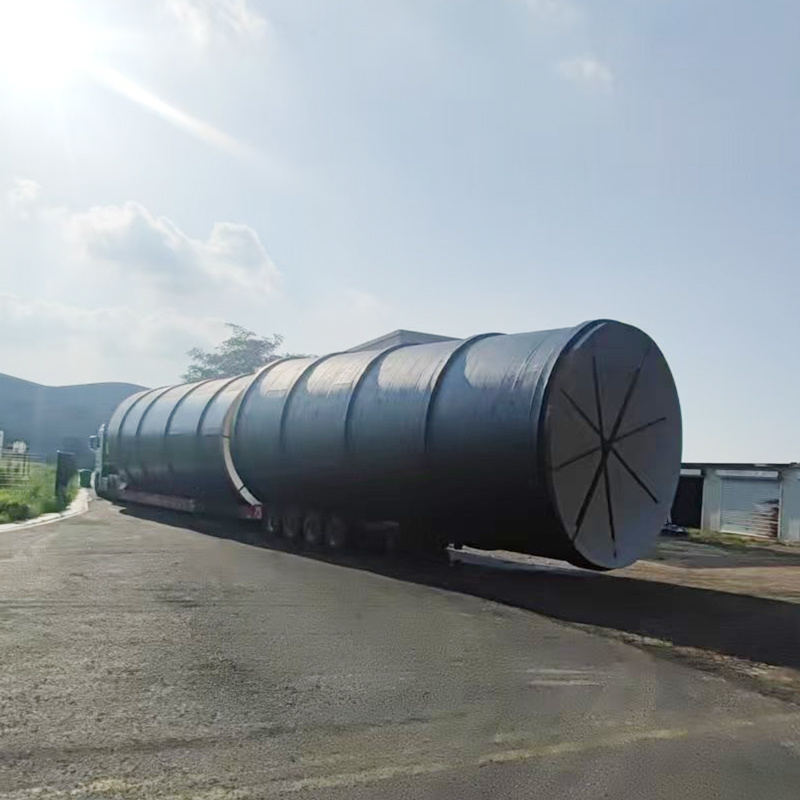How Newest Coated Steel Pipes Revolutionize Natural Gas Infrastructure
Jul 08,2025
How Newest Coated Steel Pipes Revolutionize Natural Gas Infrastructure
Table of Contents
1. Introduction to New Coated Steel Pipes
2. Importance of Coated Steel Pipes in Natural Gas Infrastructure
3. Advanced Technologies Behind Coated Steel Pipes
4. Key Benefits of Using Coated Steel Pipes
5. Applications of Coated Steel Pipes in Natural Gas
6. Environmental Impact and Sustainability

How Newest Coated Steel Pipes Revolutionize Natural Gas Infrastructure
Table of Contents
- 1. Introduction to New Coated Steel Pipes
- 2. Importance of Coated Steel Pipes in Natural Gas Infrastructure
- 3. Advanced Technologies Behind Coated Steel Pipes
- 4. Key Benefits of Using Coated Steel Pipes
- 5. Applications of Coated Steel Pipes in Natural Gas
- 6. Environmental Impact and Sustainability
- 7. The Future of Coated Steel Pipes in Energy Infrastructure
- 8. Frequently Asked Questions
- 9. Conclusion
1. Introduction to New Coated Steel Pipes
In the evolving landscape of natural gas infrastructure, **coated steel pipes** have emerged as a game-changer. As energy demands soar globally, the need for safer, more efficient transportation of natural gas has become paramount. Newest coated steel pipes stand at the forefront of this revolution, providing enhanced durability, resistance to corrosion, and improved overall performance.
2. Importance of Coated Steel Pipes in Natural Gas Infrastructure
Coated steel pipes play a crucial role in the **natural gas supply chain**. Given the hazardous nature of gas transportation, these pipes must withstand various environmental challenges. The importance of using coated steel pipes cannot be overstated, as they offer robust solutions to minimize risks associated with leaks and ruptures.
2.1 Ensuring Safety
Safety is at the heart of natural gas infrastructure. Coated steel pipes are designed to resist external and internal pressures, preventing catastrophic failures and ensuring the safe transport of natural gas.
2.2 Enhancing Efficiency
The efficiency of natural gas distribution systems is significantly improved with coated steel pipes. Their lightweight nature facilitates easier installation and maintenance while ensuring long-term reliability.
3. Advanced Technologies Behind Coated Steel Pipes
Recent advancements in technology have paved the way for the development of sophisticated coated steel pipes. These innovations enhance performance, reliability, and safety in natural gas infrastructure.
3.1 Manufacturing Processes
Modern manufacturing processes employ **cutting-edge techniques** that ensure consistent quality and durability of coated steel pipes. Techniques such as hot-dip galvanization, fusion-bonded epoxy, and polymer coatings have transformed traditional methods, resulting in superior products.
3.2 Coating Materials
The choice of coating materials is critical in determining the effectiveness of coated steel pipes. Advanced materials such as epoxy, polyurethane, and polyethylene provide superb corrosion resistance and extend the lifespan of the pipes.
4. Key Benefits of Using Coated Steel Pipes
The transition to coated steel pipes in natural gas infrastructure brings a myriad of benefits that cannot be overlooked.
4.1 Corrosion Resistance
Corrosion is one of the primary threats to the longevity and safety of steel pipes. Coated steel pipes significantly reduce the risk of corrosion, thereby enhancing their durability and lifespan.
4.2 Cost-Effectiveness
Investing in coated steel pipes can lead to substantial cost savings in the long run. Their durability reduces maintenance needs and replacement frequencies, translating to lower operational costs.
4.3 Environmental Considerations
With increased focus on sustainability, coated steel pipes contribute to environmentally friendly practices. Their longevity reduces waste and minimizes the ecological footprint of natural gas infrastructure.
5. Applications of Coated Steel Pipes in Natural Gas
Coated steel pipes find extensive applications across the natural gas industry, from exploration to distribution.
5.1 Transmission Pipelines
Coated steel pipes are extensively used in **high-pressure transmission pipelines**. Their robust nature ensures safe and efficient transport of natural gas over long distances.
5.2 Distribution Networks
In urban areas, coated steel pipes are integral to the distribution network. They facilitate the delivery of natural gas to homes and businesses, ensuring a reliable energy supply.
5.3 Storage Facilities
Storage facilities also utilize coated steel pipes to manage the safe storage of natural gas. The resistance to corrosion ensures that the integrity of the storage system is maintained over time.
6. Environmental Impact and Sustainability
The environmental impact of coated steel pipes is a significant consideration in today’s energy landscape. With the increasing focus on sustainable practices, coated steel pipes offer several advantages.
6.1 Reducing Carbon Footprint
By enhancing efficiency and extending the lifespan of natural gas infrastructure, coated steel pipes help reduce the carbon footprint associated with natural gas distribution.
6.2 Promoting Sustainable Practices
The use of eco-friendly materials in the coatings of these pipes promotes sustainable practices within the industry, aligning with global efforts to mitigate environmental impacts.
7. The Future of Coated Steel Pipes in Energy Infrastructure
The future of coated steel pipes in the natural gas industry looks promising. With ongoing research and development, we can anticipate further innovations that will enhance their performance.
7.1 Smart Coatings
Emerging technologies are likely to introduce **smart coatings** that can monitor the integrity of pipes in real-time, providing invaluable data for maintenance and safety.
7.2 Enhanced Sustainability Efforts
As the industry shifts towards sustainable practices, we expect to see more eco-friendly materials being utilized in manufacturing coated steel pipes, further reducing their environmental impact.
8. Frequently Asked Questions
8.1 What are coated steel pipes?
Coated steel pipes are steel pipes that have undergone a protective coating process to enhance their resistance to corrosion and improve their overall durability.
8.2 How do coated steel pipes compare to traditional steel pipes?
Coated steel pipes offer superior corrosion resistance, enhanced durability, and reduced maintenance costs compared to traditional steel pipes.
8.3 What types of coatings are used on steel pipes?
Common coatings include epoxy, polyurethane, and polyethylene, each offering unique benefits in terms of corrosion resistance and durability.
8.4 Are coated steel pipes environmentally friendly?
Yes, coated steel pipes contribute to environmental sustainability by reducing waste and extending the lifespan of natural gas infrastructure.
8.5 What industries use coated steel pipes?
Coated steel pipes are predominantly used in the natural gas sector but are also applicable in oil, water, and various industrial applications.
9. Conclusion
The advent of **newest coated steel pipes** marks a significant milestone in the evolution of natural gas infrastructure. With their unparalleled durability, corrosion resistance, and cost-effectiveness, these pipes not only enhance safety and efficiency but also pave the way for a sustainable energy future. As technology continues to advance, we can expect coated steel pipes to play an even more critical role in meeting the growing demands of natural gas infrastructure, ultimately revolutionizing how we transport and utilize this vital resource.
TAG:
Previous
Related Posts
How Newest Coated Steel Pipes Revolutionize Natural Gas Infrastructure
How Newest Coated Steel Pipes Revolutionize Natural Gas Infrastructure
Table of Contents
1. Introduction to New Coated Steel Pipes
2. Importance of Coated Steel Pipes in Natural Gas Infrastructure
3. Advanced Technologies Behind Coated Steel Pipes
4. Key Benefits of Using Coated Steel Pipes
5. Applications of Coated Steel Pipes in Natural Gas
6. Environmental Impact and Sustainability








